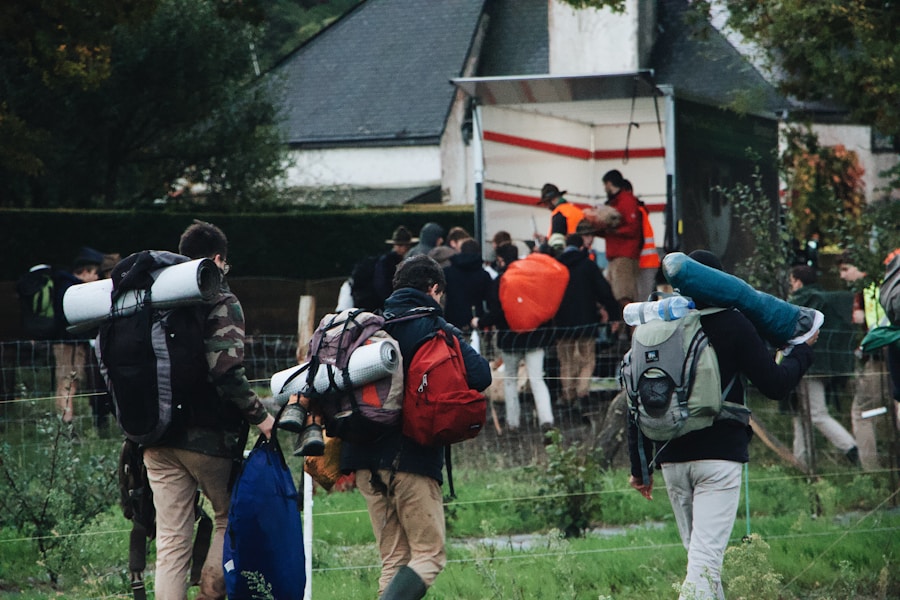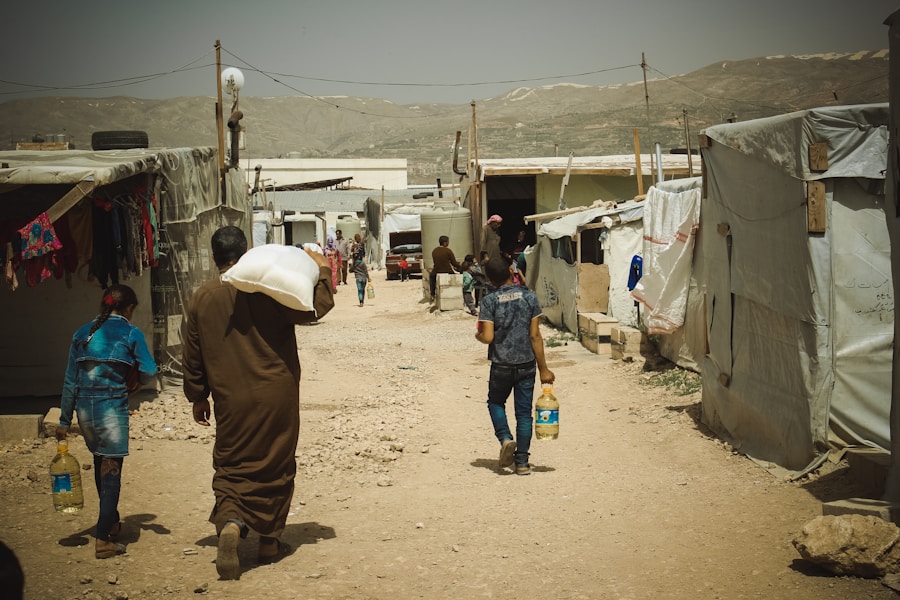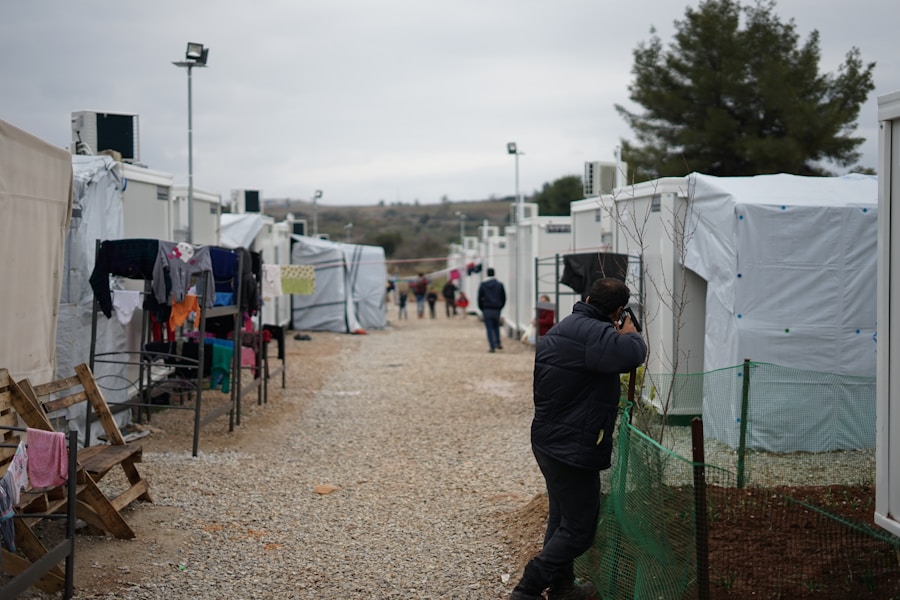The global refugee crisis has reached unprecedented levels, with millions of individuals forcibly displaced from their homes due to conflict, persecution, and human rights violations. According to the United Nations High Commissioner for Refugees (UNHCR), as of mid-2023, there are over 26 million refugees worldwide, a staggering figure that underscores the urgency of addressing this humanitarian issue. This number does not include the internally displaced persons (IDPs), who have been uprooted within their own countries, nor does it account for those who are seeking asylum.
The scale of displacement is not merely a statistic; it represents the lives of individuals and families torn apart by circumstances beyond their control. The reasons behind this mass displacement are complex and multifaceted. Armed conflicts in regions such as Syria, Afghanistan, and South Sudan have created dire situations where civilians are caught in the crossfire, leading to an exodus of people seeking safety.
Additionally, systemic issues such as political oppression, ethnic violence, and environmental disasters—exacerbated by climate change—have contributed to the growing numbers of refugees. For instance, the impact of climate change is increasingly recognized as a driver of displacement, with rising sea levels and extreme weather events forcing communities to abandon their homes. This intersection of conflict, persecution, and environmental degradation highlights the urgent need for comprehensive solutions that address both immediate humanitarian needs and the root causes of displacement.
Key Takeaways
- The global refugee crisis has reached unprecedented levels, with over 26 million refugees and 41 million internally displaced persons worldwide.
- Legal and policy challenges, including access to asylum and protection, pose significant barriers for refugees and displaced persons seeking safety and security.
- Addressing the humanitarian crisis requires a focus on providing access to basic needs such as food, water, shelter, and healthcare for refugees and displaced persons.
- Supporting the mental health and well-being of refugees is crucial, as many have experienced trauma and psychological distress due to their displacement.
- Overcoming barriers to inclusion and promoting the integration and resettlement of refugees requires collaborative efforts and international cooperation to create sustainable solutions.
Legal and Policy Challenges Facing Refugees and Displaced Persons
Navigating the legal landscape surrounding refugees and displaced persons presents significant challenges. International law, particularly the 1951 Refugee Convention and its 1967 Protocol, provides a framework for the protection of refugees. However, many countries struggle to implement these legal standards effectively.
For instance, the principle of non-refoulement, which prohibits returning refugees to places where they face serious threats to their life or freedom, is often violated in practice. Countries may prioritize national security concerns over humanitarian obligations, leading to the detention or deportation of individuals seeking asylum. Moreover, the lack of harmonization in national policies can create barriers for refugees.
Different countries have varying definitions of who qualifies as a refugee, which can lead to inconsistencies in asylum processes. In some regions, bureaucratic hurdles and lengthy processing times exacerbate the vulnerability of refugees. For example, in Europe, the Dublin Regulation requires asylum seekers to apply for protection in the first EU country they enter, which can result in overcrowded facilities and inadequate support systems in those nations.
This fragmented approach not only undermines the rights of refugees but also places immense pressure on host countries that may lack the resources to provide adequate assistance.
Access to Basic Needs: Addressing the Humanitarian Crisis

Access to basic needs such as food, shelter, healthcare, and education is critical for refugees and displaced persons. Unfortunately, many find themselves in dire situations where these fundamental rights are not met. Humanitarian organizations often step in to provide emergency assistance; however, funding shortfalls and logistical challenges can hinder their efforts.
For instance, in refugee camps like those in Cox’s Bazar, Bangladesh—home to nearly a million Rohingya refugees—conditions are overcrowded and resources are stretched thin. Many families live in makeshift shelters with limited access to clean water and sanitation facilities, leading to health crises that can escalate rapidly. Education is another area where refugees face significant barriers.
Children who have fled conflict zones often miss years of schooling, which can have long-term implications for their development and future opportunities. In many cases, educational programs for refugee children are underfunded or non-existent. For example, in Lebanon, where over a million Syrian refugees reside, schools struggle to accommodate the influx of students.
The lack of educational resources not only affects academic achievement but also hinders social integration and emotional well-being. Addressing these basic needs is essential not only for survival but also for fostering resilience among displaced populations.
Mental Health and Trauma: Supporting the Well-being of Refugees
The psychological impact of displacement cannot be overstated. Many refugees experience profound trauma due to violence, loss of loved ones, and the stress of navigating uncertain futures.
Unfortunately, mental health services are often inadequate or entirely absent in refugee settings. Cultural stigma surrounding mental health can further complicate access to care; many individuals may be reluctant to seek help due to fear of discrimination or misunderstanding. Innovative approaches are needed to address these mental health challenges effectively.
Community-based programs that incorporate culturally sensitive practices can play a vital role in supporting refugees’ mental well-being. For instance, initiatives that promote peer support networks allow individuals to share their experiences and coping strategies in a safe environment. Additionally, integrating mental health services into primary healthcare can help destigmatize seeking help while ensuring that refugees receive comprehensive care tailored to their unique needs.
By prioritizing mental health alongside physical health and basic needs, humanitarian organizations can foster resilience and empower refugees on their journey toward recovery.
Integration and Resettlement: Overcoming Barriers to Inclusion
Successful integration into host communities is crucial for refugees’ long-term well-being and stability. However, numerous barriers hinder this process. Language differences can create significant obstacles; without proficiency in the local language, refugees may struggle to access services or find employment opportunities.
Additionally, cultural differences can lead to misunderstandings and social isolation. In many cases, host communities may harbor misconceptions about refugees that fuel xenophobia or discrimination. To facilitate integration, targeted programs that promote language acquisition and cultural exchange are essential.
For example, community centers that offer language classes alongside cultural orientation can help bridge gaps between refugees and host populations. Employment initiatives that connect refugees with local job markets not only provide financial stability but also foster social connections that enhance community cohesion. Countries like Canada have implemented successful resettlement programs that prioritize integration through mentorship schemes and community involvement, demonstrating that inclusive policies can lead to positive outcomes for both refugees and host communities.
International Cooperation and Solidarity: Working Towards Sustainable Solutions

Addressing the global refugee crisis requires a concerted effort from the international community. The complexities of displacement demand collaborative solutions that transcend national borders. Initiatives such as the Global Compact on Refugees aim to enhance international cooperation by promoting responsibility-sharing among nations.
This framework encourages countries to support one another in hosting refugees while ensuring that displaced individuals receive adequate protection and assistance. However, achieving meaningful cooperation remains a challenge as political will varies significantly across nations. Some countries have embraced resettlement programs and humanitarian aid initiatives, while others have adopted restrictive policies that limit access for refugees.
The need for solidarity is particularly pressing in regions experiencing high levels of displacement; neighboring countries often bear the brunt of hosting large refugee populations without sufficient support from wealthier nations. Strengthening partnerships between governments, NGOs, and international organizations is essential for creating sustainable solutions that address both immediate humanitarian needs and long-term integration challenges. In conclusion, the global refugee crisis is a multifaceted issue that requires urgent attention from all sectors of society.
One related article to Refugees and Displacement Challenges is “Exploring the Philosophies of Tagore and Radhakrishnan: Humanism, Religion, and the Purpose of Life.” This article delves into the teachings and beliefs of two prominent Indian philosophers, Rabindranath Tagore and Sarvepalli Radhakrishnan, and how their ideas on humanism, religion, and the purpose of life can provide insights into addressing the challenges faced by refugees and displaced populations. To read more about this thought-provoking topic, click here.
FAQs
What are refugees and displaced persons?
Refugees are individuals who have been forced to flee their home country due to persecution, war, or violence. Displaced persons are individuals who have been forced to leave their homes but remain within their home country’s borders.
What are the main challenges faced by refugees and displaced persons?
Refugees and displaced persons face a range of challenges, including lack of access to basic necessities such as food, water, and shelter, limited access to healthcare and education, and the psychological impact of displacement.
How many refugees and displaced persons are there globally?
According to the United Nations Refugee Agency (UNHCR), there are currently over 26 million refugees and 41 million internally displaced persons worldwide.
What are some of the solutions to the challenges faced by refugees and displaced persons?
Solutions to the challenges faced by refugees and displaced persons include providing humanitarian aid, creating opportunities for resettlement and integration, and addressing the root causes of displacement through conflict resolution and peacebuilding efforts.
What is the role of the international community in addressing the refugee and displacement crisis?
The international community plays a crucial role in providing humanitarian assistance, advocating for the rights of refugees and displaced persons, and supporting efforts to address the root causes of displacement. This includes providing funding for humanitarian aid, advocating for refugee rights, and supporting peacebuilding and conflict resolution efforts.
























+ There are no comments
Add yours